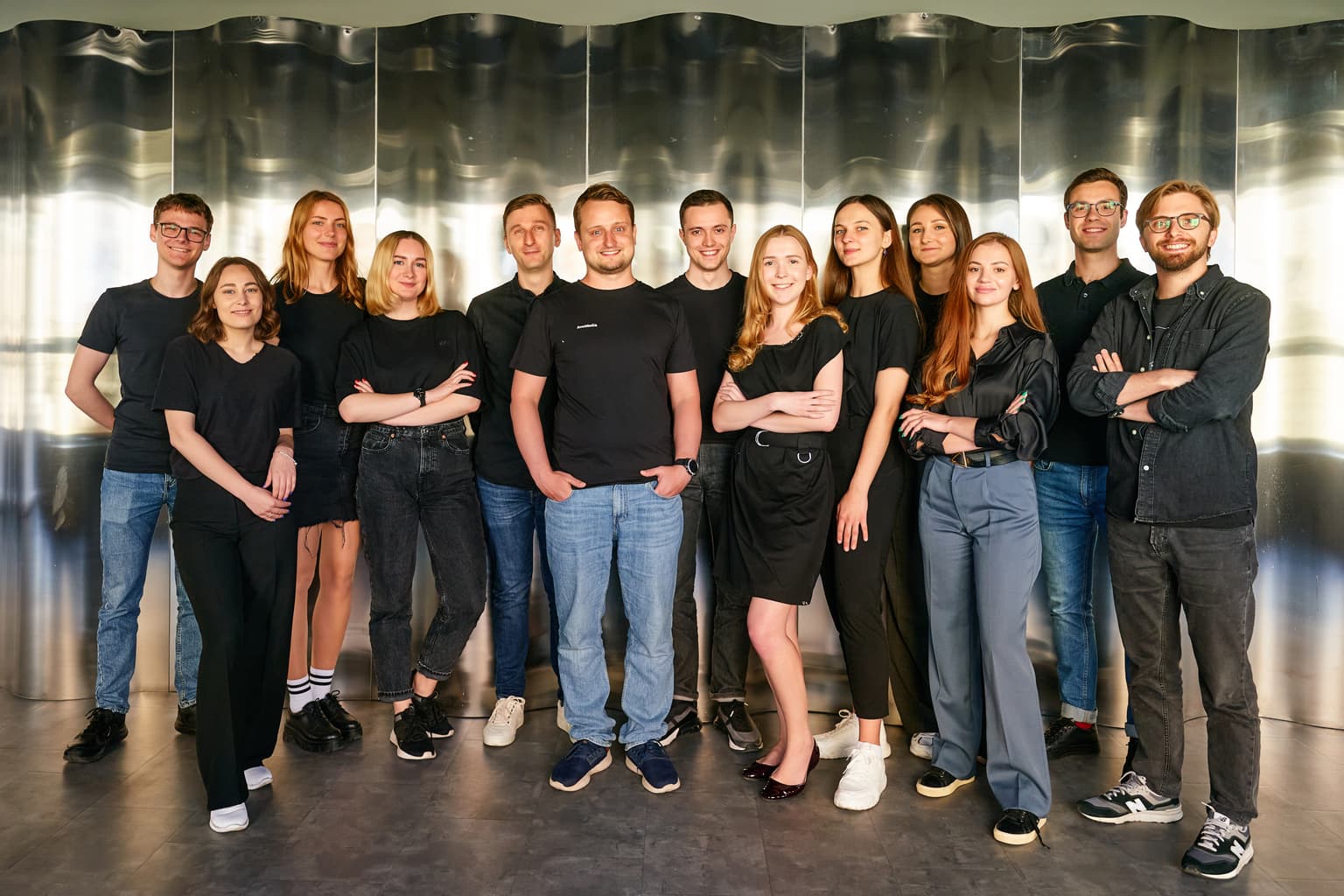Belarus-founded startup Peech attracts half a million from Ukrainian investors

In his native Belarus, 30-year-old tech entrepreneur Andrey Poznyak was once a political prisoner. He spent six months behind bars for protesting Belarusian dictator Alexander Lukashenko’s brutal crackdown on civil society following fraudulent elections in 2020.
Poznyak later made his way to Ukraine, along with thousands of fellow techies, and in the fall of 2021 founded a startup called Peech — a mobile app that can read aloud any written content. It allows its users to quickly scan or upload written text, an article, PDF, book, or even Twitter thread, and turn it into audio in nearly 60 different languages.
The startup caught the attention of Ukrainian investors. On July 26, Ukraine-based investment fund Flyer One Ventures, a spinoff of local tech company Genesis, announced it had invested $550,000 in Peech to help it expand into the rest of Europe and the U.S.
Poznyak and Peech’s two other founders, Belarusians Alex Gorbel and Bahram Ismailov, still have to weather several crises. The war in Ukraine and the global financial downturn have made it more difficult for startups to hire people, attract customers, and raise funding.
But the founders have ambitious plans – they want to improve their technology by using artificial intelligence, conquer new markets, and attract 500,000 downloads and 15,000 paying customers by the end of the year.
Investors are also optimistic: "Peech’s product has the potential to be used in many industries – from education to business," said Vital Laptenok, general partner at Flyer One Ventures.
“The number of companies using such tech will only increase in the future,” he told the Kyiv Independent.
During a period of strained relations between Ukraine and Belarus over Belarus' involvement in Russia's war, the tech sector is one of the remaining connections between the two countries.
The people and technology behind Peech
The war has scattered the team across different countries: Poznyak moved to Poland, Gorbel – to Georgia, and Bahram – to Portugal. The company employs a total of 10 people – five of them are still in Ukraine.
Poznyak told the Kyiv Independent that with Peech, users can consume more content and save time. Businesses can convert their blogs into podcasts or use Peech to transcribe calls and online workshops, Laptenok said.
The same technology can also help people with visual impairments or disabilities, according to Laptenok.
Among the most active users of the app are specialists from the financial, medical, and advertising industries, lovers of fantasy stories, and students, according to Poznyak.
Here's how Peech works: for about $3 a week users can upload photos of book pages, word documents, PDFs, or links to articles into the app, and then Peech's algorithms turn text into audio recordings. To make it sound more natural, the startup uses machine learning technology.
Since its launch, Peech has attracted 2,000 paying customers. The largest number of users last month came from the U.S., Italy, Romania, Spain, Germany, Australia, and France. The most profitable market is the U.S., according to Poznyak.
A startup like Peech could also be a valuable asset to companies in the audio streaming market, as well as media outlets looking to reach a wider audience by turning articles into podcasts.
The audio content industry has grown significantly over the past few years. The global podcasting market, for instance, was valued at $13 billion in 2021 and is predicted to be worth $153 billion by 2030, while the audiobook market size is anticipated to reach $35 billion by 2030.
Working during a crisis
In 2021, the global startup market was drowning in investors' money as venture capital funding hit a record $621 billion, according to research firm CB Insights.
As a result, startup valuations were unreasonably high and companies were burning money and hiring chaotically without thinking about profits.
This year is different. Big investors like Y Combinator, SoftBank, and Sequoia told startups to “prepare for the worst” as in the next six to 12 months they may be trying to raise money “at the peak of the downturn.”
The numbers confirm the slowdown. Investments in U.S. tech startups plunged 23% over the last three months, to $62 billion, according to PitchBook data, — its steepest decline since 2019.
Laptenok’s business was unbothered by the changes in the global market: Since the beginning of 2022, Flyer One Ventures has invested in 11 new startups, including its portfolio companies like Estonia-based ed-tech startup 99math.
Peech’s latest investment round is also too small to be affected by the downturn, according to Poznyak. After all, this is the startup's first external funding. In addition to investments, the startup’s founders put $150,000 into Peech from their own pockets.
Peech is the third Belarus-founded startup to raise money from Flyer One Ventures. The fund also invested in Basenji Apps and Vochi, which was acquired by Pinterest last year.
For now, Peech plans to grow on its own, according to Poznyak. And its founders have a lot of plans: launching a content-sharing platform, adding a translation feature, and teaching artificial intelligence how to summarize text.
Given Belarus' involvement in Russia's war against Ukraine, Flyer One Ventures has made the decision not to invest in startups that focus on the Belarusian market, or that work and operate in the country and do not plan to relocate, Laptenok said.
Laptenok himself was born and lived in Belarus for a long time. “Belarus is not the best country for business, but we support founders who managed to create cool startups,” he said.










